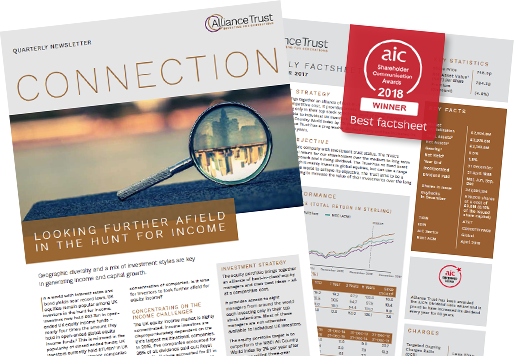There are schools of thought on investment in China at the moment: back out, stay in, re-purpose, i.e. switch stocks. And why – well it all depends on the stocks impacted by the Chinese Government’s implementation of regulatory policies which broadly seek to clamp down on stocks which perform contrary to the greater good of the community (Common Prosperity), such as – in this current swathe of regulation targets - technology stocks, ie gaming stocks, private online education services companies and food delivery companies.
While some investors have backed out, seasoned and long-term investors are less alarmed particularly by China’s move to protect its state by clamping down on anti-competitive practices and big tech firms especially with dual listing. These investors see such activity as nothing new. Those that want to stay in – and argue who can realistically opt to stay out of the second largest economic presence in the world? – look instead to other options, which are, not surprisingly, very often those which benefit the state.
The background to the sectors where China has placed restrictions is fascinating. The crackdown on the K-12 private tutoring sector comes from the rampant growth of the tutoring business that has exacerbated parental anxiety and increased the cost of child rearing. As demographics in China are aging rapidly, the government is promoting policy to increase birth rates and for-profit tutoring is viewed as hindering this goal.
Then the Government has put limits on video game play time for minors aimed at reducing screen time (e.g., preventing eye issues such as dry eye problems in younger age demographics), reducing obesity in youth, addressing addiction (and other mental health issues), and as the younger generation matures and enters the workforce to increase productivity.
Meanwhile the impact to the food delivery business is more around providing proper pay and benefits to drivers, so labour reforms.
We asked our managers how they see the country and its attractiveness or otherwise for investors and where their focus should lie.
Rajiv Jain, founder of GQG, is among those who have reduced their exposure to China recently. Alarmed by the government’s interventions in the economy, he now has more capital invested in Brazil and Russia across his firm’s portfolios than he does in China despite its much larger role in the global economy. Ever pragmatic, he will nevertheless be monitoring developments in case attractive opportunities arise from market upheavals.
Bill Kanko is Founder and President of Black Creek Investment Management acknowledges that there is both concern/risk and opportunity with respect to the recent tightening of regulation in China.
“The risk is that the market becomes less investible due to restrictive policy decisions, but the opportunity comes if this “crackdown” is temporary and eases (i.e., substantial growth opportunities in the world’s second largest economy),” he says.
Black Creek’s contrarian nature means it finds many of its best ideas where others are not looking.
“We continue to do our due diligence and there is the potential to take advantage of further share price weakness and broad investor pessimism,” says Kanko.
Black Creek has limited direct exposure to Chinese technology stocks. One it is likely to continue to hold is Baidu, the largest Internet search engine in China with an over 70% market share, where it derives significant advertising revenue. Baidu is a technology-driven company and is considered a leader in artificial intelligence (AI) research, including technology for autonomous vehicles. It is also growing its cloud computing service offerings in China and Southeast Asia and is considered a leader in AI cloud services in China. Kanko considers the company’s valuation is attractive, particularly when the value of Baidu’s stake in iQiyi (a streaming service in China like Netflix) and its excess capital is considered.
“We view the industry wide campaign to increase data protection and ensure fair competition as positive for China’s technology sector’s development given an increasing compliance burden will further cement the leading positions that companies, such as Baidu, have built over the previous decade,” says Kanko.
Hugh Sergeant, Head of Value and Recovery Equities at River and Mercantile, also holds Baidu. While to some extent understandable to Western investors, the concerns that have led to reforms in China have caused uncertainty.
“Some share prices have fallen greatly, with digital economy related indices down 50%,” says Sergeant. “Many shares have become exceptionally good value as a result.” Baidu is one Sergeant says his team has been adding to.
“Baidu has only modest direct exposure to the areas of increased regulation, its core market of internet advertising being competitive and its areas of growth, such as Artificial Intelligence and Autonomous vehicles, being areas that are strongly supported by the Chinese Communist Party (CCP). Stripping out the material value attached to their growth investments, the core search business is on a single digit earnings multiple and a double-digit free cash flow yield and is still growing robustly,” he says.
There are also value opportunities amidst the changes and uncertainties. As Sergeant points out there are attractive, long-term growth opportunities, huge innovation, a large and increasingly well-educated workforce which is hard working and entrepreneurial, and a growing equity market that remains very under-represented in global indices. But in the short term he says much of this is offset by the significant uncertainties thrown up by a period of intense regulatory change.
“As value investors, we do think the significant corrections in share prices catalysed by the aggressive discounting of these uncertainties have created many attractive investment opportunities, but do accept that these will only prove to be high return investments if you believe the Chinese Communist Party (CCP) remains supportive of the role of private (and foreign) capital in providing the bedrock for the economic growth and ‘common prosperity’ that they have to deliver to their people. We believe they will struggle to deliver their prosperity mandate without State Capitalism and, as a result, are comfortable to add to the positions we have built in stocks with exposure to China.”
He adds that the digital economy already accounts for over 30% of China’s GDP and is a key pillar of growth and for multiple reasons there is a desire to compete with the US in this area.
“There should be little desire to impair the long-term growth of this part of the Chinese economy,” he says.
Despite value or contrarian opportunities in China, there are potential implications for Chinese companies abroad. Changes which have come about over government concerns over inequality, high cost of living, low birth rate and a rapidly aging population are developing alongside a more adversarial relationship with the West, and especially the US, where many of China’s largest companies are listed, according to Rob Rohn, founder and manager at Sustainable Growth Adviser (SGA).
Rohn says while Chinese companies have for years been encouraged to grow rapidly and achieve hyperscale to compete with global peers, and the Chinese government has always exercised oversight in the internet space, most regulatory actions were relatively modest and allowed for quick remediation by businesses. Now he says, given the critical role internet companies play in the Chinese economy today, and their highly sensitive data assets, the Chinese government is shifting to a more active and aggressive approach.
“Such actions negatively impact the future profitability of businesses or, in extreme cases, change fundamental business models as demonstrated in the education sector where for-profit tutoring has been effectively nationalized,” says Rohn. “We are concerned there will be additional regulatory actions limiting profitability, withdrawing favourable tax treatment, curtailing variable interest entity (VIE) structures and restricting data access. Since the Chinese legislative process is opaque, and President Xi Jinping has consolidated his power as head of the Chinese Communist Party, shareholders may have little warning of significant regulatory change. In addition, the growing hostility with the West may result in pressure on Chinese and non-Chinese companies engaged in cross-border business, as well as the delisting of Chinese securities on overseas markets.”
However, Rohn says he does not believe the changes signal an end to the potential for successful foreign investment in China.
“While the size of the country’s GDP is approaching the US, GDP per capita is well behind the developed world and will remain a strong secular growth engine as it rises. The key for future investment is to position alongside this growth, while minimizing exposure to the less predictable regulatory actions of the Chinese government.”
SGA has exposure to Chinese growth via companies such as Hong Kong-based AIA Group, which has a fast growing business on the mainland as the hierarchy of needs of the middle class moves to insurance and financial products. It also recently added Mengniu Dairy to its Qualified Company List, which as the leader in Chinese milk and milk products, is providing access to healthy nutrition to a population demanding more protein as their incomes rise.
“We recognize that recent changes have heightened the risk of investing in China, but it is important to remember that China has a rich history of entrepreneurship and innovation, represents nearly 20% of the world’s population, and has been a major growth engine for world GDP in the last few decades as hundreds of millions of its population emerged from poverty into the middle class,” says Rohn.
The key is to identify those companies that can sustainably grow and compound shareholder value over the long-term, leveraging powerful secular growth drivers such as China’s continued transition towards a consumption-led economy.
China’s current social, as it were, focus on ‘common prosperity’, sharing of wealth, fair employment rights in terms of pensions, pay and health plans for example and equality in terms of education, property and healthcare could be seen as commendable. It could salve investor concerns of human rights issues. Further, future targets may also appeal.
“China’s policymakers have identified four main pillar industries, namely energy conservation and environmental protection; biotechnology; next generation information technology; advanced machinery and equipment, in short, what some refer to as ‘new infrastructure’ development. Companies focusing on these areas may provide good long term sustainable investment opportunities if they benefit from long term competitive advantages and are available at attractive valuations,” says Andy Headley, head of global strategies at Veritas Asset Management.
“Whilst the short-term landscape has unsettled investors views on the likes of Alibaba, it’s highly probable the company will continue to play a pivotal role in supporting growth within the Chinese economy and benefiting from digitalisation in all aspects of life. One area likely to grow significantly is Cloud infrastructure, which is still in an early stage in China and an area in which Alibaba not only exceeds but is on the cusp of turning profitable,” Headley concludes.
Craig Baker, who chairs the Alliance Trust Investment Committee, is sanguine about the portfolio’s exposure to China. He says: “We remain convinced that China is an exciting long term investment opportunity and that it will play a much bigger part in the global economy and stock markets in the future, albeit in a potentially more politically polarised world.
“However, successful investing in China is all about being highly selective, which is why we’ve got expert stock pickers on the job, as opposed to taking a big bet top-down on the country, which could easily backfire”.
Past performance is not a reliable indicator of future returns. This material contains the opinions of the manager and such opinions are subject to change without notice. Forecasts, estimates and certain information contained herein should not be considered as investment advice or a recommendation of any particular security, strategy or investment product. Information contained herein has been obtained from sources believed to be reliable, but not guaranteed.
TWIM is the appointed Alternative Investment Fund Manager of Alliance Trust plc. Alliance Trust plc is a listed UK investment trust and is not authorised and regulated by the Financial Conduct Authority.
Read more investment expertise






